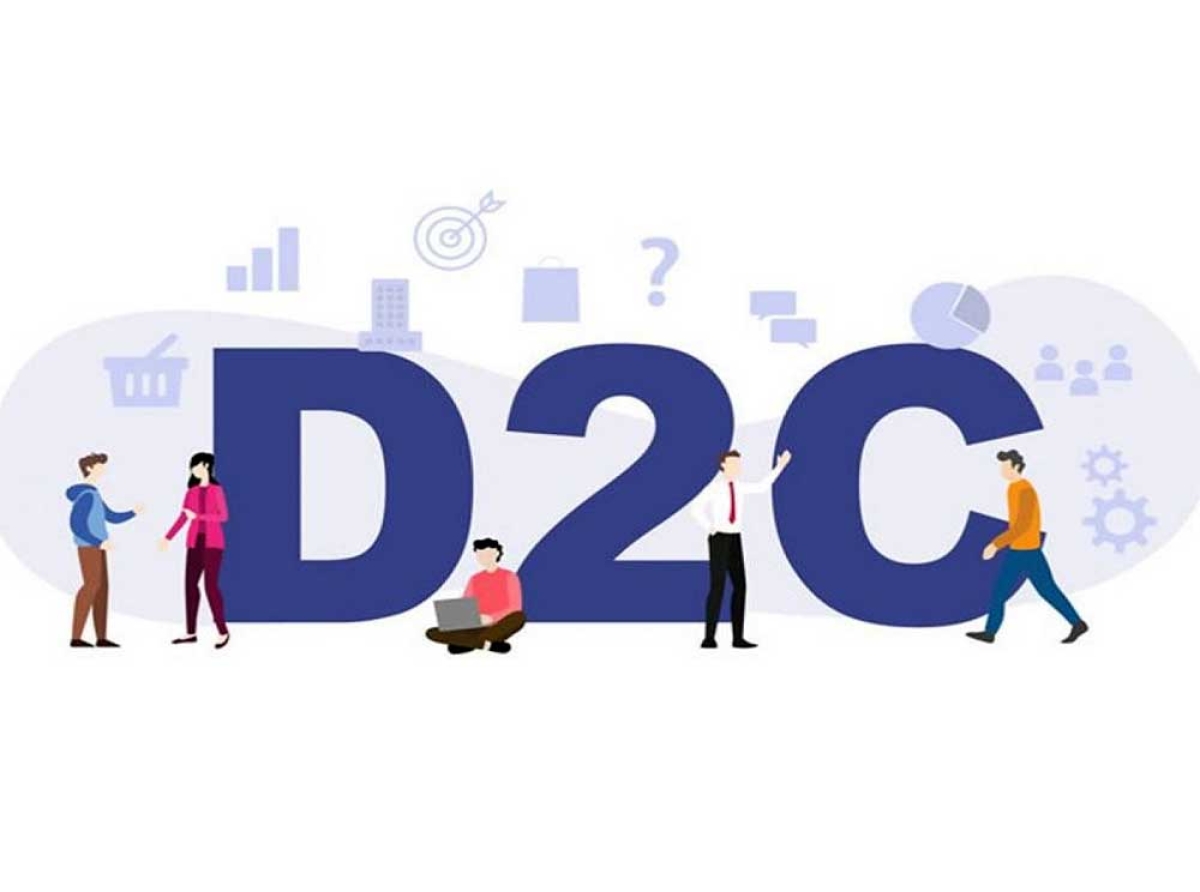D2C brands spice up India's fashion & apparel sector

10 February 2025, Mumbai
India's Direct-to-Consumer (D2C) market has seen unprecedented growth, with projections from Inc42indicating it will reach $300 billion by 2030. This growth is being driven by several factors, including increasing internet and smartphone penetration, shifting consumer preferences, and an expanding appetite for transparency, sustainability, and personalized shopping experiences.
D2C advantage
The D2C model is reshaping the traditional retail landscape by enabling brands to connect directly with consumers, eliminating intermediaries, and offering unique, customized products that resonate with modern buyers. As a result, the fashion and apparel sector is witnessing a boost in new-age brands that are disrupting the industry with innovation and agility.
A key advantage of D2C brands is their ability to cater to niche markets with highly personalized offerings. Unlike traditional retail chains, which rely on broad appeal, D2C brands focus on specialized segments, creating unique value propositions. They emphasize ethical sourcing and sustainable practices, aligning with the growing consumer demand for environmentally responsible fashion. Additionally, the direct engagement model allows brands to build strong relationships with their customers, gathering valuable feedback to refine their products continuously. With reduced reliance on brick-and-mortar stores and an agile digital-first approach, D2C brands can swiftly adapt to changing fashion trends and consumer behaviors.
Table: Leading D2C fashion & apparel brands
|
Brand |
Product focus |
Financial performance/funding |
Investors |
|
Libas |
Ethnic Wear |
Rs 500 cr revenue in FY24, Raised Rs 150 cr from ICICI Ventures |
ICICI Ventures |
|
DaMENSCH |
Men's Clothing |
$24.6 mn Funding, Rs 72.3 cr Revenue in FY23 |
A91 Partners, Matrix Partners, Saama Capital |
|
BlissClub |
Women's Activewear |
$17.25 mn Funding, Rs 68 cr Revenue in FY23 |
Eight Roads Ventures, Elevation Capital |
|
Freakins |
Denim Wear |
$4 mn Funding, Rs 22 cr Gross Revenue in FY23 |
Matrix Partners India, Blume Ventures |
|
The Pant Project |
Custom Bottom Wear |
Backed by MGA Ventures, Huddle, Dexter Ventures |
MGA Ventures, Huddle, Dexter Ventures |
|
Bacca Bucci |
Footwear |
Bootstrapped |
N/A |
|
Clovia |
Lingerie, Sleepwear |
Acquired by Reliance Retail, Rs 291.71 cr Revenue in FY23 |
Reliance Retail, AT Capital, IvyCap Ventures |
|
Zivame |
Lingerie, Activewear, Shapewear, Sleepwear |
Acquired by Reliance Brands, Rs 191.7 cr Revenue in FY24 |
Reliance Brands |
|
Bombay Shirt Co. |
Custom Apparel (Men & Women) |
$22 mn Funding |
Singularity Ventures, Alteria Capital, Lightbox |
|
SoleThreads |
Footwear |
$7.6 mn Funding |
Fireside Ventures, DSG Consumer Partners, Saama Capital |
Innovations key to growth
The Indian D2C fashion and apparel sector is full of innovation, with brands catering to diverse demographics and style preferences. Ethnic wear brands like Libas are blending traditional aesthetics with contemporary designs to appeal to a broad audience. Men's fashion labels such as DaMENSCH and XYXX are redefining comfort and functionality in everyday wear, while activewear brands like BlissClub are setting new standards in women's fitness apparel. Denim-focused brands like Freakins are capturing the Gen-Z market with trendy yet affordable options. Custom apparel companies such as The Pant Project and Bombay Shirt Company are empowering consumers to personalize their wardrobes with bespoke designs. Meanwhile, footwear brands like Bacca Bucci and SoleThreads, alongside lingerie giants Clovia and Zivame, are revolutionizing their respective niches with stylish and high-quality products.
The financial growth of these brands further underscores the potential of the D2C model in India. For instance, Libas achieved Rs 500 crore in revenue in FY24 after securing Rs 150 crore in funding from ICICI Ventures. DaMENSCH, a leader in men's clothing, raised $24.6 million while generating Rs 72.3 crore in revenue in FY23. Similarly, BlissClub, a pioneer in women's activewear, secured $17.25 million in funding with Rs 68 crore revenue in the same fiscal year. Footwear brands and lingerie labels have also drawn significant investor interest, with Clovia and Zivame both being acquired by Reliance, cementing their positions as major players in the Indian fashion market.
Competition, logistic issues mar growth
Ddespite its rapid ascent, the D2C fashion sector is not without challenges. The increasingly crowded market makes differentiation crucial for brands seeking to carve out a lasting niche. Customer acquisition costs remain a significant hurdle, as brands must invest heavily in digital marketing to build awareness and attract buyers. Logistics and fulfillment also present operational challenges, with timely delivery and efficient supply chain management being critical to maintaining customer satisfaction. Ensuring profits while offering competitive pricing is a delicate balancing act for many emerging brands.
Nevertheless, the future of India's D2C fashion industry is promising. The ongoing digital revolution, coupled with evolving consumer behaviors and innovative business models, provides fertile ground for these brands to thrive. As the market matures, one can expect more specialized offerings, enhanced customer experiences, and increased adoption of sustainable and ethical fashion practices. With strong investor backing and a growing base of loyal customers, D2C brands are well-positioned to redefine India's fashion and apparel sector, making it more dynamic, inclusive, and globally competitive.
























